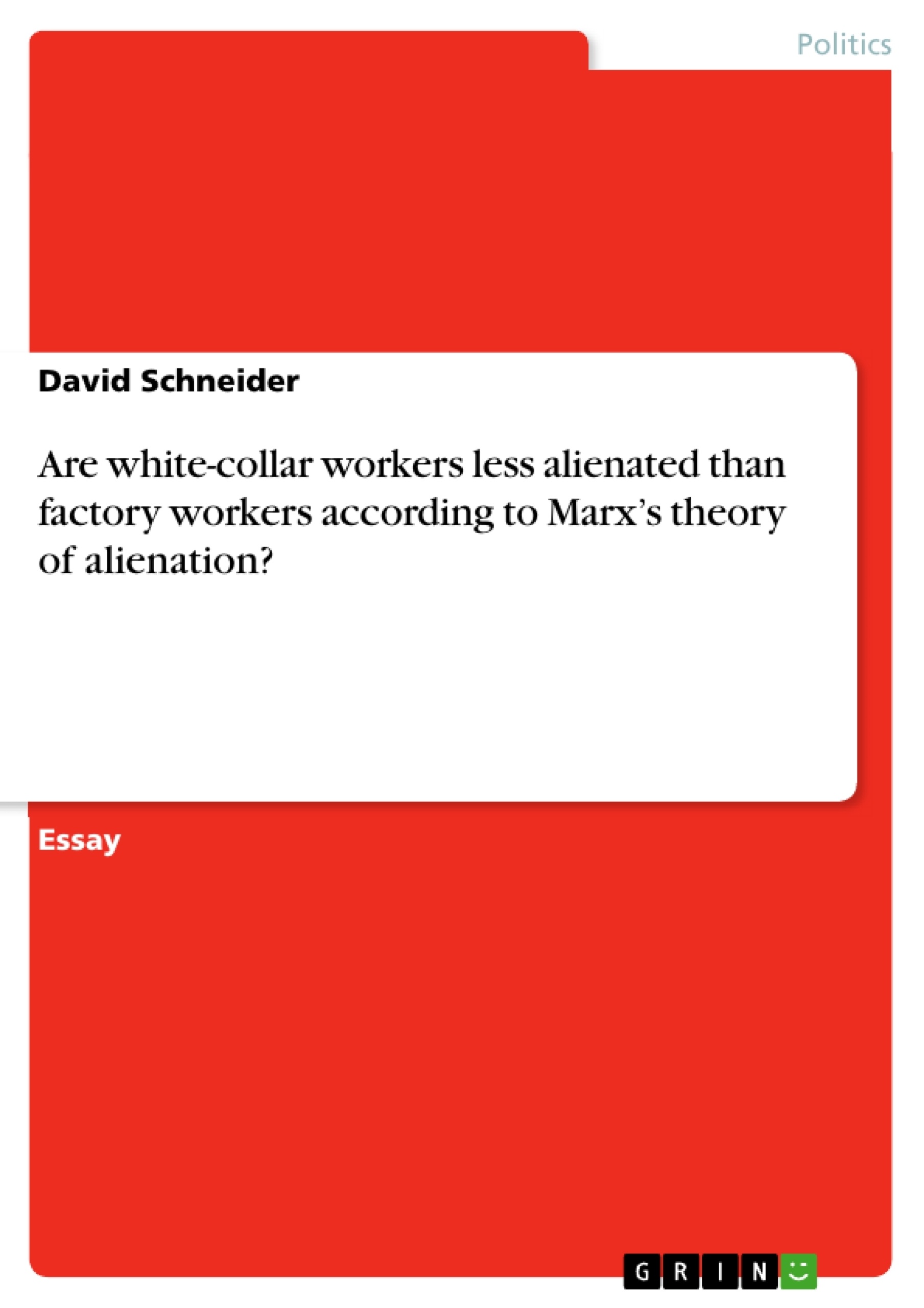In 1844 Karl Marx articulated his theory of alienation in his economical and philosophical manuscripts. Back then, most workers were "blue-collar" factory workers. Nowadays, while there are still factory workers, a great percentage of people work in "white-collar" jobs fulfilling administrative or managerial functions in offices. The aim of this essay is to investigate whether white-collar workers are less alienated than blue-collar workers.
First, I want to point out that humans have needs. Second, I present the four types of alienation that arise, according to Marx, in a capitalist system when humans work on satisfying their needs. Third, I analyse to what extent white-collar workers suffer from these types of alienation.
Inhaltsverzeichnis (Table of Contents)
- Humans have needs
- Four types of alienation
- White-collar workers and alienation
- Conclusion
Zielsetzung und Themenschwerpunkte (Objectives and Key Themes)
This essay examines whether white-collar workers are less alienated than blue-collar workers according to Marx's theory of alienation. It explores the concept of human needs, outlines the four types of alienation identified by Marx in a capitalist system, and analyzes the extent to which white-collar workers experience these forms of alienation.
- Marx's theory of alienation
- The nature of human needs
- The four types of alienation in a capitalist system
- The experiences of white-collar workers in a modern capitalist context
- The relationship between alienation and self-estrangement
Zusammenfassung der Kapitel (Chapter Summaries)
- Humans have needs: This section establishes the foundation for Marx's theory of alienation by outlining the fundamental needs that define human beings. It differentiates between basic needs and more complex social needs, emphasizing the role of human needs in driving technological advancements.
- Four types of alienation: This section introduces the four types of alienation that arise in a capitalist system of industrial production according to Marx: alienation from the object of labor, from the activity of production, from other workers, and from oneself. Each type is explained in detail, illustrating the consequences of capitalist production on the worker's well-being.
- White-collar workers and alienation: This section examines the application of Marx's theory of alienation to the modern context of white-collar work. It acknowledges the differences between traditional factory work and modern service-oriented jobs, yet argues that white-collar workers are not immune to alienation. The analysis explores how the four types of alienation manifest in white-collar work, highlighting the unique challenges faced by these workers.
Schlüsselwörter (Keywords)
Key concepts discussed in this essay include Marx's theory of alienation, human needs, capitalist system, industrial production, white-collar workers, blue-collar workers, estrangement, self-estrangement, and the relationship between work and human well-being.
- Citation du texte
- David Schneider (Auteur), 2018, Are white-collar workers less alienated than factory workers according to Marx’s theory of alienation?, Munich, GRIN Verlag, https://www.grin.com/document/417212



